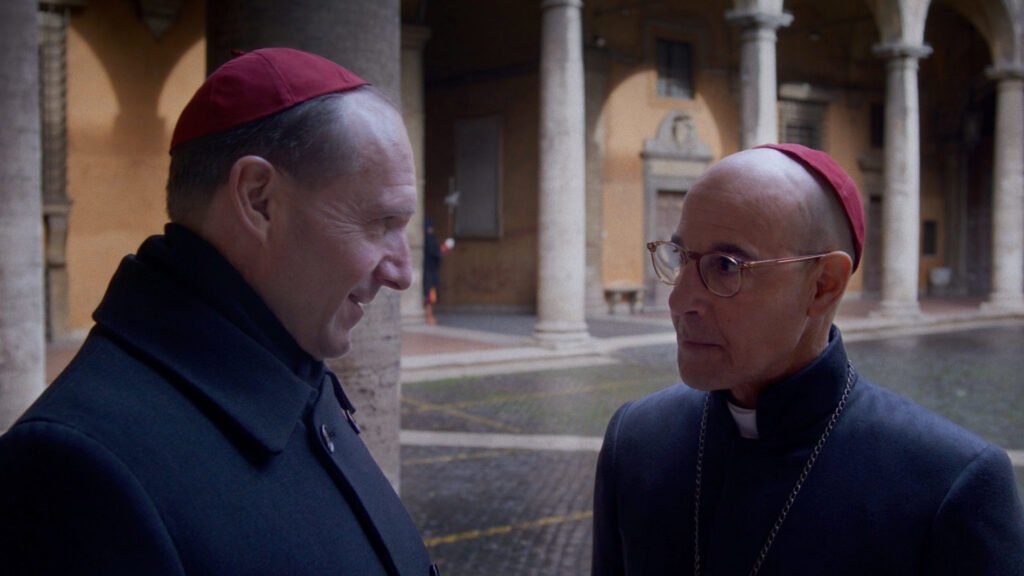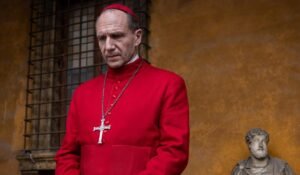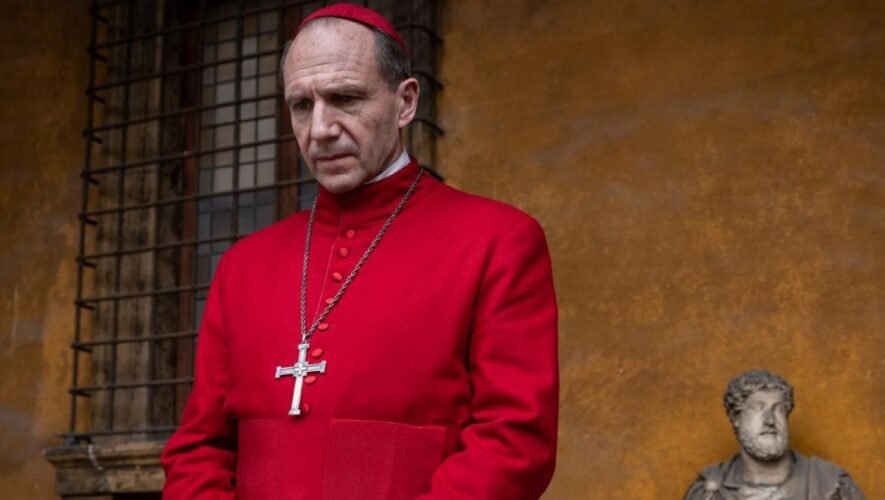Conclave Film Review: A Visually Stunning Yet Politically Shallow Thriller

Conclave, directed by Edward Berger and based on Robert Harris’s 2016 novel, is a cinematic adaptation set during a papal conclave—a gathering of Catholic cardinals to elect a new pope. Despite being a beautifully produced film with superb performances, its handling of Catholic politics and religious drama falls short. The film brings to life the complex world of church politics but struggles to explore its themes with depth and nuance.
The Plot: A Struggle for Power in the Church
Set against the backdrop of a papal election, Conclave focuses on the election of a new pope following the sudden renunciation of Pope Benedict XVI in 2013. This transition sets the stage for a battle between liberal and conservative factions within the church. The movie brings together an impressive cast, with Ralph Fiennes portraying Cardinal Lawrence, tasked with convening the conclave. As he grapples with a crisis of faith, the film explores the political maneuvering and spiritual dilemmas faced by the cardinals.
Strong Performances and Stunning Cinematography
The film’s acting is undoubtedly one of its strongest elements. Fiennes delivers an excellent portrayal of Cardinal Lawrence, balancing inner conflict with external pressure. Stanley Tucci shines as the American liberal cardinal, while Isabella Rossellini steals scenes with her remarkable presence. The cinematography is equally compelling, with beautifully crafted shots that evoke the grandeur of the Vatican. However, some of the symbolic imagery, such as the repeated use of smoking to signify temptation, feels overly obvious.

Weak Political and Theological Exploration

While the film presents the contesting factions of the Catholic Church, the political dynamics between liberals and conservatives are oversimplified. The conservatives, in particular, are reduced to caricatures, represented by a stereotypical Italian cardinal whose actions are more theatrical than substantive. This lack of character development undermines the potential for meaningful drama, making the political tensions feel one-dimensional.
The film also fails to delve deeply into the theological underpinnings that drive these factions. The resulting drama feels more like a superficial exploration of office politics than a profound narrative about faith, power, and the future of the church.
A Missed Opportunity for a Compelling Story
Conclave had the potential to be a gripping political thriller, but its reliance on clichés and lack of real exploration into the heart of church politics and theology limits its impact. The film ultimately presents a rather superficial story, more focused on visual appeal and spectacle than on providing a substantive commentary on the church’s ideological struggles. What could have been a thoughtful examination of the church’s future instead turns into an entertaining but forgettable film.




A small river named Duden flows by their place and supplies it with the necessary regelialia. It is a paradisematic country, in which roasted parts of sentences fly into your mouth. Even the all-powerful Pointing has no control about the blind texts it is an almost unorthographic life One day however a small line of blind text by the name of Lorem Ipsum decided to leave for the far World of Grammar.